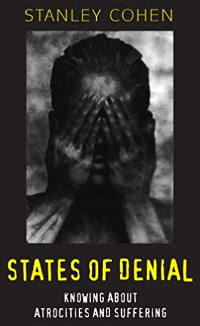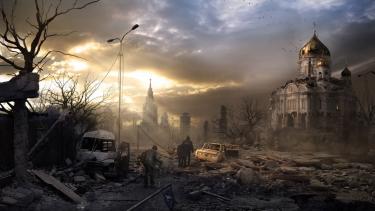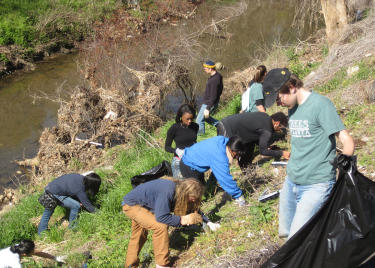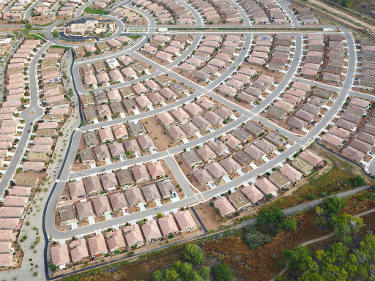From Reform to Devolution: Jem Bendell’s Deep Adaptation
Environmentalists advocate reduce, reuse, and recycle as the 3 R’s of sustainability—good practices, but incommensurate with the scope of our emergency. To better mitigate the looming ecological and social crises, we propose superseding these R’s with resilience, relinquishment, and restoration.
Along the way, we’ll look at the three I’s of denial which helped get us into this mess: ignorant, interpretative, and implicative.
We draw on Jem Bendell’s academic paper “Deep Adaptation” which urges his fellow sustainability professionals to stop tinkering with an irreparable system and instead prepare for collapse. Beneath the surface of his mostly placid, formal prose, he implies an even more radical necessity: active replacement of the industrial system. This will be less a revolution than a devolution—transferring power and decision making to local communities.
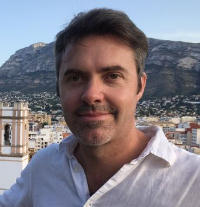
Jem Bendell
Bendell has a background in sustainable business and finance, with an impressive list of accomplishments from twenty years in the field. When he reviewed and grappled with climate science for the first time since 1994, he came to some of the same shocking realizations as have we: the 2°C warming limit was chosen more for political than scientific reasons; we’ve already overdrafted our carbon budget; “green” tech and governments and decades of environmentalism “have not produced a net positive outcome.”
Like us, he now deems catastrophic climate disruption and near term societal collapse to be inevitable, rendering his field’s traditional work mostly irrelevant. Minor progress on an agenda more concerned with industrial development than with true sustainability is pointless if the wins are dwarfed by the losses. “For instance, discussing progress in the health and safety policies of the White Star Line with the captain of the Titanic as it sank into the icy waters of the North Atlantic would not be a sensible use of time.”
Bendell wrote the sober “Deep Adaptation” for colleagues unaware of the likelihood of short term societal collapse or the possibility of near term human extinction, so it’s worth reading in full if those concepts are new to you. We’ll explore some psychological underpinnings of our collective failure to change course, introduce Bendell’s deep adaptation framework, and relate his paper to our goal of stopping fossil fuels.
The Three I’s of Denial
We often process information according to “perspectives we wish for ourselves and others to have, rather than what the data may suggest is happening.” Social norms exacerbate this self-censorship, as people fear disturbing the peace with the truth of how bad things are. Sustainability professionals risk careers if they question an upbeat resilience narrative of “development” and “progress.”
Sociologist Stanley Cohen built a theoretical framework of denial in his book States of Denial. More recently, sociologist Ron Kramer and author John Foster have each applied his ideas to global warming denial.
Ignorant denial
Ignorant denial1 is used actively, to justify apathy or to shield against reality. Comfortable citizens give in to entertainment and diversions while knowing they’re disengaged from reality. Distractions include not only TV sitcoms and sports, but also corporate news and political spectacle. Accepting prepackaged memes from one’s subculture or political tribe, without employing critical thinking, is as much an avoidance of difficult truths as is refusing to think at all.
Interpretative denial
Interpretative denial accepts the facts, but gives them different meaning than is normal. The denier may honestly believe this unusual interpretation, or may cynically undermine discourse. Global warming “skeptics” employ interpretive denial when they admit industrialism’s warming impact, but claim it will yield net benefits in plant growth and happier days basking in mild winter sunshine.
Implicative denial
Environmentalists don’t commonly indulge in ignorant or interpretative denial, but do in implicative denial—accepting and fully understanding the facts, but avoiding the logical conclusions. Of course reasonable people can debate those conclusions, but most would agree with Foster’s assessment: “From dipping into a local Transition Towns initiative, signing online petitions, or renouncing flying, there are endless ways for people to be ‘doing something’ without seriously confronting the reality of climate change.” Living a moral, fulfilling life requires honestly contemplating the implications of our environmental crises. Only by rejecting the well-traveled road of denial can one choose a meaningful path.
Not just individuals, but entire environmental organizations engage in implicative denial. From Big Green NGOs thriving on donations towards influencing legislation, to scrappy radicals fostering a reputation for obstructive lock downs, groups want to feel and appear effective. But ecological destruction is intimidatingly vast in scale and deeply entrenched within business as usual; in contrast, typical aboveground, attrition based actions can rarely achieve substantive change.
Activists come to accept environmentally fatal compromise as the only realistically achievable outcome, or abandon long-term systemic goals to pursue occasional small wins against one project at a time. Few acknowledge that we’re losing the war; fewer contemplate the implications for their future actions. Individuals and groups dodge analysis of their efficacy with the platitude that at least they’re “doing something.” Though such self deception is understandable as a morale boost amidst thankless work and heartbreaking losses, it undermines the movement. Denying reality in order to feel that our work counts for something is dangerous and ultimately unfulfilling. We must make our actions truly effective.
Choosing Our Framing
Humans aren’t as rational as we like to believe. Bendell outlines a range of scenarios imagined by those who accept some form of collapse as likely:
- Transition to a beneficial post-consumerist way of life
- Catastrophic descent without hope of a tolerable future
- Near term human extinction
People choose from and assign probabilities and timings to these alternatives based more on their preferred story than on data and analysis. Bendell himself chooses to interpret the facts as indicating inevitable collapse, probable catastrophe, and possible human extinction.
Our psychological need for purpose influences the stories we choose around collapse. George Marshall explains that humans “invest our efforts into our cultures and social groups to obtain a sense of permanence and survival beyond our death.” We subconsciously fear not only the immediate personal danger of collapse, but the total death threatened by loss of the entire society to which we might contribute.
Some reject the idea of societal collapse because acceptance would strip all meaning and purpose from life; others embrace it as an excuse for inaction and self-indulgence. In contrast, those ready for adult responsibility might welcome the opportunity to leave a legacy of unprecedented reach and longevity. They can impact not only their immediate society, but the future of all life.
We can’t know humanity’s fate with certainty—whether we’ll transition relatively smoothly through a long descent, or suffer a painful collapse, or go altogether extinct. But barring an extremely unlikely—and entirely preventable—scenario of life wiped out down to the bacteria, our actions matter. The more biological abundance and biodiversity which make it through the bottleneck of industrialism, the healthier will be the future for survivors. If society as we know it collapses, then the more intact the biosphere, the easier will be the lives of those humans picking up the pieces. If our species goes extinct, then the less damage we’ve inflicted on the way, the faster others can rebound. With recovery from mass extinctions taking millions of years, saving a species or habitat from destruction leaves a permanent legacy.
We are given both a heavy responsibility and a unique opportunity for purpose in life.
The Three R’s of Collapse
Bendell’s “deep adaptation” accepts near term collapse as inevitable, and avoids implicative denial by asking “what to do?” with eyes wide open. His answers revolve around identifying the core values we want to retain as we build new cultures. He doesn’t attempt to explore specifics of a deep adaptation agenda (so as not to reinforce the illusion that we can control or manage conditions), but he provides a framework:
Resilience
How do we keep what we really want to keep?
In institutional discussions, “resilience” planning often aims to maintain a close approximation of business as usual, complete with “development” and economic growth. But if material “progress” is incompatible with sustainability, its pursuit is counterproductive.
We might draw instead from a psychological understanding of resilience as the ability to “bounce back” from hardship or loss. In this framing, we prioritize valued societal norms and behaviors to retain (or on which we can even improve). These might include security and stability, physical and mental health, relationships with family and friends, meaningful work, spirituality, and interaction with the non-human world.
Relinquishment
What do we need to let go of in order not to make matters worse?
Our current lifestyle brought us to this point of collapse. If we cling to it, we’ll go down that much harder. To keep what we really want, we must let go of many expectations and customs. We need to put an end to industrial mining, fishing, logging, agriculture, transportation, manufacture, and consumption. We may have to withdraw from dense settlements, coastlines, deserts, and other areas uninhabitable in an overheated world.
One way or another, our unsustainable practices will cease. Giving them up voluntarily, sooner rather than later, promises individuals, families and communities the most autonomy and time to learn from mistakes.
Restoration
What can we bring back to help us with the coming difficulties and tragedies?
Bendell suggests rewilding landscapes, changing diets, rediscovering non-electronic forms of play, and relocalizing. Industrialism has eroded the foundations not only of non-human life, but of human cooperation. Anywhere you look, there’s work to be done rebuilding topsoil, establishing perennial polycultures, reforesting, bringing down dams, and defending species and habitats. Human communities need post-carbon skills, practice working together, and localization of everything, including food, energy, education, decision making, construction, trade, and enforcing norms.
Conclusion: Get Proactive
“In abandoning hope that one way of life will continue, we open up a space for alternative hopes.” — Tommy Lynch
Bendell and other critical thinkers anticipate inevitable societal collapse, probable catastrophic break down of human communities, and possible near term human extinction. Elites want to “protect” the public from such analysis, in fear of instigating hopelessness, dismay and despair. Such paternalism makes sense in Hollywood movies, where disasters befall passive victims with scripted fates often ending in gruesome death. But in reality, hopelessness and despair seem appropriate responses to our predicament, and may be necessary precursors to grounded action. Bendell finds that sharing his analysis with students in a supportive environment leads not to apathy or depression, but to a positive focus on moving forward. Whichever scenario unfolds, we can still minimize and mitigate risks and damage. By choosing what to retain, what to relinquish, and what to restore, we shift from victims to actors in our and the planet’s destiny.
On a small scale, people can embrace voluntary simplicity, better preparing themselves and their communities for collapse. Tragically, at the international scale, society shows no sign of willingly transforming to a sane and sustainable way of living—in fact, it’s escalating its experiment in madness. 7.7 billion humans cling to an overcrowded extension ladder supported by ecological systems and secured by the web of life. Yet every day our society tears at that web and blasts away chunks of the ladder’s foundation, while squeezing on 227,000 more humans than the day before. For each step that proactive individuals descend towards solid ground, global industrialism extends the ladder ten higher.
A radical yet inescapable implication runs through Bendell’s piece: with collapse inevitable, the sooner it occurs, the gentler will be our collective transition. He suggests people must “com[e] together in solidarity to either undermine or overthrow a system that demands we participate in environmental degradation.” It’s not enough to relinquish solely as individuals; we must also forcibly loosen industrialism’s death grip. Freeing human and non-human communities from fossil fueled exploitation will open space for localization and restoration. Saving habitat and species from extermination will benefit all future beings, human and non-human.
If you’re ready to bring on devolution and leave behind the richest and most permanent life legacy possible, then read more about how to stop fossil fuels and how you can get involved.
Further Reading
- Deep Adaptation
- Jem Bendell’s blog
- Back-and-forth between Bendell and Jeremy Lent, author of The Patterning Instinct
-
Cohen terms this “literal denial” ↩︎
Consider supporting our work by joining our mailing list below, sharing & "liking" this page, and following us on social media. You may freely republish this Creative Commons licensed article with attribution and a link to the original.

